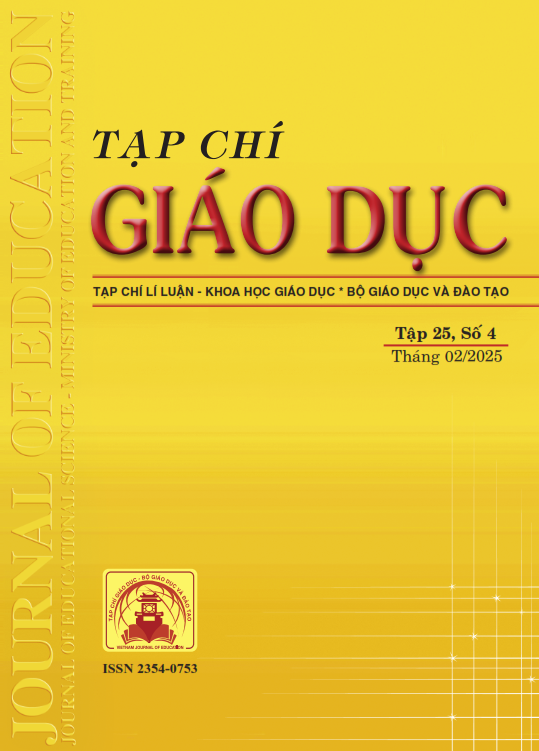Lòng tự trắc ẩn của sinh viên: Nghiên cứu tại một số trường đại học ở Thành phố Hồ Chí Minh
Tóm tắt
Self-compassion is an essential factor that serves as a valuable tool for maintaining and enhancing students' mental health. Research on self-compassion within academic settings can provide critical insights into how to cultivate and sustain mental well-being, thereby improving resilience and adaptability in increasingly stressful educational environments. This study presents survey results on the state of self-compassion among university students in Ho Chi Minh City, based on students' self-assessments using Neff’s Self-Compassion Scale (SCS-26, 2003). The findings indicate that students generally exhibit a moderate level of self-compassion. Among the components of self-compassion, “Isolation” and “Self-criticism” were reported at the highest levels, while “Self-kindness” was the lowest. Statistically significant differences were observed in self-compassion levels across genders and academic disciplines. The male students exhibited higher levels of of “Isolation” and “Over-identification”, while the students majoring in foreign languages showed the highest levels of self-compassion. Conversely, the information technology majors displayed the lowest levels. The results provide a robust scientific and practical foundation to help students better understand the importance of self-compassion in maintaining mental health and fostering personal development.
Tài liệu tham khảo
Deniz M. E., Kesici, S., & Sumer, A. S. (2008). The validity and reliability of the Turkish version of the Self-compassion Scale. Social Behavior and Personality, 36(9), 1151-1160. Society for Personaity Research (Inc).
Neff, K. D., & Dahm, K. A. (2015). Self-Compassion: What it is, What it does, and How it relates to Mindfulness. In Handbook of Mindfulness and Self-Regulation. Edited by Brian D. Ostafin, Michael D. Robinson and Brian P. Meier. Springer.
Neff, K. D. (2003a). Self-compassion: An alternative conceptualization of a healthy attitude toward oneself. Self and Identity, 2, 85-101. http://doi.org/10.1080/15298860390129863
Neff, K. D. (2003b). The development and validation of a scale to measure self-compassion. Self and Identity, 2(3), 223-250. https://doi.org/10.1080/15298860309027
Neff, K. D., Hsieh, Y., & Dejitterat K. (2005). Self-compassion, achievement goals, and coping with academic failure. Self and Identity, 4(3), 263-287.
Nguyễn Công Khanh (2001). Ứng dụng SPSS FOR WINDOWS: Xử lí và phân tích dữ liệu. NXB Đại học Quốc gia Hà Nội.
Trần Thu Hương, Trần Minh Điệp (2017). Đánh giá lòng tự trắc ẩn: Một nghiên cứu định lượng ở sinh viên Việt Nam. Tạp chí Tâm lí học, 10(223), 13-23.
Tải xuống
Đã Xuất bản
Cách trích dẫn
Số
Chuyên mục
Giấy phép

Tác phẩm này được cấp phép theo Ghi nhận tác giả của Creative Commons Giấy phép quốc tế 4.0 .












